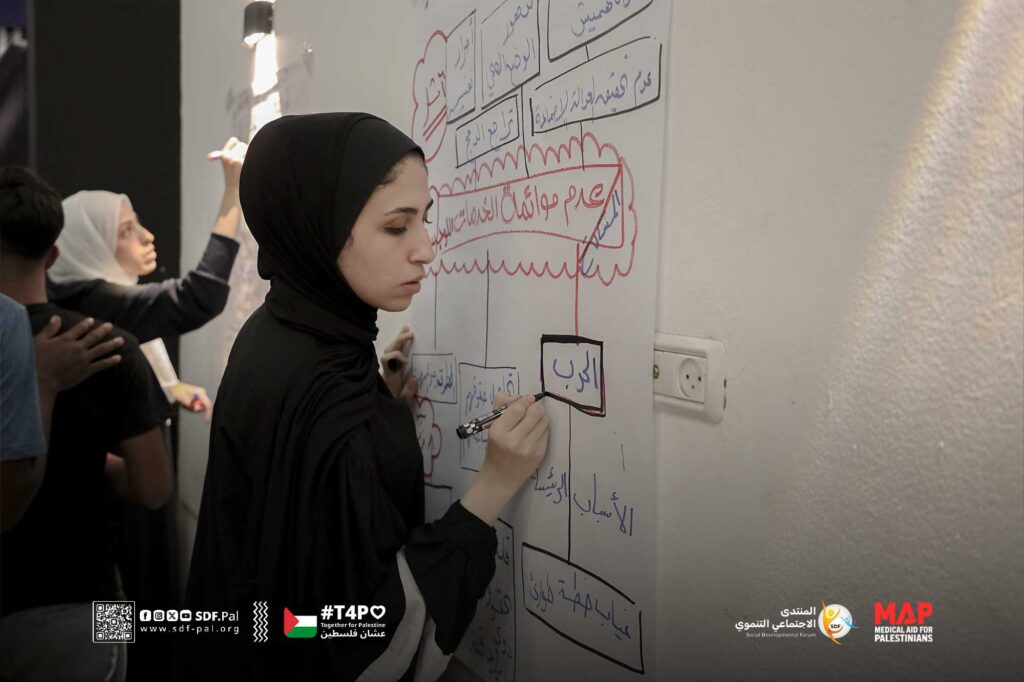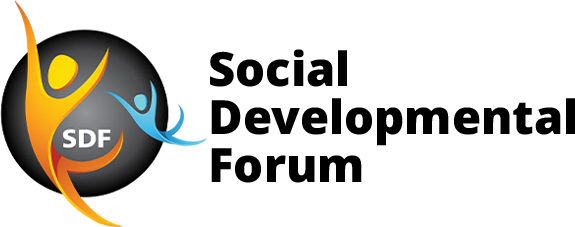Amid the darkness of the gnocide, Access for all is a beacon of hope

Hala Naeem Hamdan is a 21-year-old university student majoring in English. She lives in Deir Albalah, the middle area of the Gaza Strip. Although she lost her father at an early age, her mother’s support enabled her to pursue her path. Her mother is not only a role model, but a “bright light from Allah”, as she coined.
Hala has been an outstanding student and is well-respected by her professors, colleagues, and friends. Yet, the 2023 genocide has dramatically changed her life. Like all youth in Gaza, the war not only destroyed universities, but also vanished security, daily life routines, and small blessings.
Yet amid this darkness, Hala found hope in being engaged with the SDF and MAP collaborative project, which aims to promote the independence and inclusion of people with disabilities in the Gaza Strip. Through being part of the “Access for All” youth network, Hala and her peers will increase their knowledge and awareness of the pressing issues that people with disabilities face and how to advocate for the accessibility and inclusion of PWDs amid the war.

Driven by her dedication, passion, and enthusiasm, Hala applied and was selected to be part of the network. She didn’t expect the 6-day training program to be a significant milestone in her life. The training atmosphere was very supportive, being among specialized trainers and passionate trainees about human rights enriched here knowledge and awareness. Through being engaged in meaningful discussions, she learned about anchors of inclusion and accessibility that she wasn’t aware of before, not only in terms of infrastructure and policies, but even daily life aspects.
This program enriched Hala’s knowledge of inclusion protocols and frameworks, but also data collection and analysis skills, as well, which ultimately revitalized her self-confidence. Meeting a group of people with disabilities in person and engaging with them directly in the training was the most remarkable aspect. She engaged in active dialogue and learned firsthand insights.
Engaging with people with disabilities taught me that to be a voice for people with disabilities, we should support creating spaces so they can raise their own voice, and agency is not advocacy.
Hala Hamdan
This program was also her first engagement with advocacy. Ultimately, she realized that it’s a powerful approach to lead change. For Hala, this wasn’t a mere capacity-building program, but a beacon of hope amid the war, which inspired her to pursue her efforts toward development and change-making.

“Advocacy inspired me to utilize people power to influence policies and make informed change. I believe that change is only possible when we acquire knowledge and determination. I look forward to deepening my contribution to advancing the inclusion and accessibility for PWDs, ultimately, to contribute to an inclusive community. This is not a training, but a revitalizing experience.” Hala said


